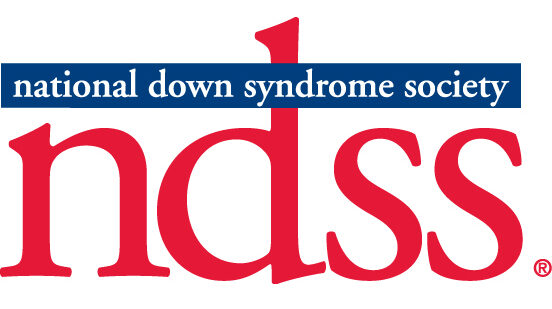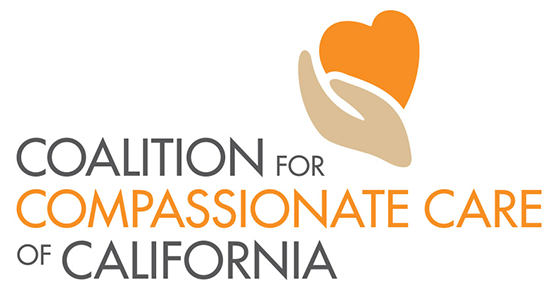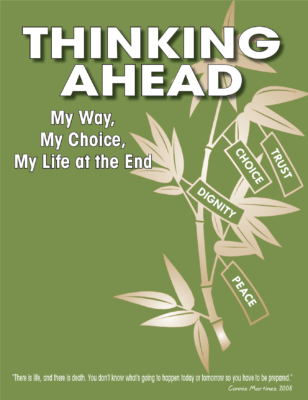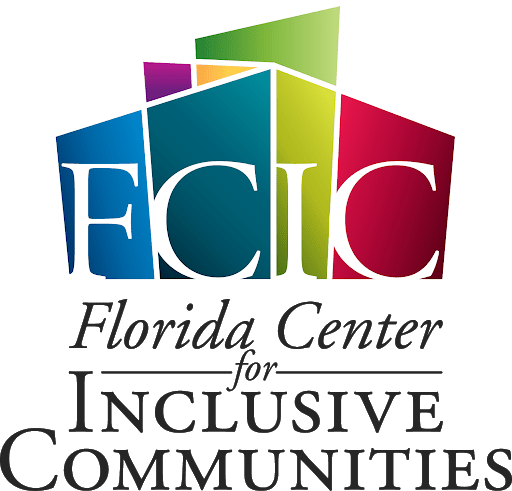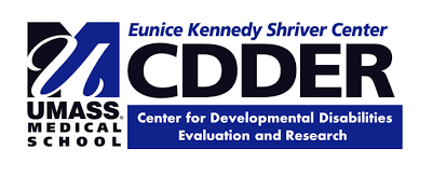Advance Planning and End of Life Decisions
There has been an increase in awareness of end-of-life and palliative care issues in recent years for the general population, as well as for people with intellectual and developmental disabilities (I/DD). Appropriate and accurate information must be available to support sound decision-making as adults with I/DD are particularly at risk when caregivers do not have clear guidelines or pass away before their family member who eventually requires care. Because health and functional declines begin when adults with Down syndrome are in their 40s, and when their parents are in their 70’s and 80’s, future planning may need to occur when adults with Down syndrome are in their 30’s and their parents are in their 60’s.
Legal and Financial Planning
The National Institute on Aging
Individuals suffering from dementia often decline slowly and can live for many years post-diagnosis. Legal and medical experts encourage people recently diagnosed with a serious illness to examine and update their financial and healthcare arrangements as soon as possible. The NIH National Institute on Aging offers both information on advanced planning for healthcare as well as legal and financial planning to enable individuals with dementia, and their caregivers, to make informed decisions.
The Arc's Center For Future Planning
The Arc’s Center For Future Planning aims to support and encourage adults with intellectual and developmental disabilities (I/DD) and their families to plan for the future. The Center provides reliable information, in both English and Spanish, and assistance to individuals with an intellectual and developmental disability, their family members and friends, professionals who support them, and other members of the community on areas such as person-centered planning, decision- making, housing options, and financial planning. Information is also provided in Spanish. The Center also offers webinars to help people with intellectual and developmental disabilities (I/DD), their families, and professionals on a variety of topics.
Healthcare Decision Making
National Down Syndrome Society, NTG, and Alzheimer’s Association
The National Down Syndrome Society, in partnership with the NTG and Alzheimer’s Association has created a guidebook, End of Life and Down Syndrome to provide proactive guidance for the crossroads and decisions that arise in later life and at the end of life. There is also a companion video explaining the book.
The Coalition for Compassionate Care of California
The Coalition for Compassionate Care of California (CCCC) has written a whitepaper, for professionals and caregivers, Thinking Ahead Matters; Supporting and Improving Healthcare Decision-Making and End-of-Life Planning for People with Intellectual and Developmental Disabilities. This paper addresses the relationship between conservatorships of people with intellectual and developmental disabilities and the importance of fostering greater self-determination. The publication also explores and makes recommendations on legal, medical, and supported decision-making.
Thinking Ahead Workbook
The CCCC has also created a workbook, Thinking Ahead: My Life at the End, which contains words, symbols, and pictures that facilitate discussion with and decision-making by persons with an intellectual and developmental disability (I/DD), regarding their values, goals, and treatment preferences at the end of life. The workbook is also available in Spanish, Korean and Chinese. There are also accompanying videos that explain how to use the workbook and vignettes on how others have made key decisions for their final wishes.
- Thinking Ahead – My Life at the End – English
- Thinking Ahead – My Life at the End – Spanish
- Thinking Ahead: The Importance of End of Life Planning
- Betty & Connie Talk about their Choices
- Remembering Donald Roberts
To receive a free hardcopy of this workbook, call CCCC at (916) 489-2222.
The Florida Center for Inclusive Communities
The Florida Center for Inclusive Communities has created a guide Exploring My Decision–Making Options, which assists adults with intellectual and developmental disabilities in creating a person-centered plan that recognizes the importance of self-determination in decision-making.
The Conversation Project
The Conversation Project is a public engagement initiative to have every person’s wishes for end-of-life care expressed and respected. They provide publications, in a variety of languages, which offer tools and practical advice on:
Physician Orders for Life-Sustaining Treatment
Physician Orders for Life-Sustaining Treatment (POLST), states what medical treatment patients want toward the end of their lives. The objective of the form is to prevent unwanted or ineffective treatments, reduce patient and family suffering, and ensure that a patient’s wishes are known. The POLST form is translated into twelve different languages. You can learn more about POLST through Frequently Asked Questions, and POLST Guides that are offered in English, Spanish and Chinese. There is a National POLST Form but most states still use their state version. To learn about the POLST Program in your area, view this POLST map to find your local contacts.
Educational Videos
The Center for Developmental Disabilities Evaluation and Research
The Center for Developmental Disabilities Evaluation and Research (CDDER), has developed several brief videos (10 -20 min.) that address end of life issues. Topics include:
- Guardianship and Aging in Adults with Intellectual Disabilities – Part I
- Guardianship and Aging in Adults with Intellectual Disabilities, Case Studies Part II
- Five Wishes – An advanced directive that takes an eclectic approach in addressing end of life planning, which incorporates the personal, emotional, spiritual, and medical issues in planning end of life decisions with adults with an intellectual and developmental disability.



